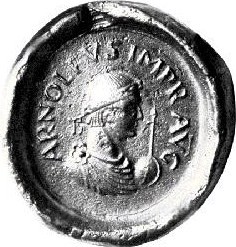
A capital of many nations, once lacked a national identity.
The birth of a nation in an era of revolutions.
And the rewriting of a National Anthem.
Story in the evening ...
The birth of a nation in an era of revolutions.
And the rewriting of a National Anthem.
Story in the evening ...
https://twitter.com/Arby_K/status/1447751422498328580
Charles Latour Rogier was born in 1800 to Firmin Rogier and Henriette Estienne. After his father's death in 1812 fighting for the French during the Napoleonic Wars, Rogier's family moved to Liège, where young Charles studied law at the university. 1/10 

Liège was the centre of an ecclesiastic state of the Holy Roman Empire, Prince-Bishopric of Liège. But a revolution in 1789 led to the creation of a Republic. It was retaken by the Habsburgs in 1791, but conquered by France in 1795. 2/10 



The Congress of Vienna allocated the Prince Bishopric along with largely Catholic Habsburg Netherlands to the newly formed Kingdom of Netherlands. The northern half of the Kingdom was the largely Protestant Dutch Republic. 3/10 

In 1824, Rogier founded a journal with his friends Paul Devaux and Joseph Lebeau. The journal, Mathieu Laensbergh (Later Le Politique), soon became an important voice against the King, since the Dutch were seen to be dominating the affairs of the state. 4/10 

A revolution in July 1830 in France led to regime change in France. King Charles X abdicated and was replaced by his distant cousin, Louis Philippe d'Orléans. who became the King of the French. It had an impact north of the French border as well. 5/10 

Riots started the next month in Brussels. The Crown Prince was send to handle it, but the calls for separation of power in the south was strong. The King refused to budge and send more troops. Revolution spread and an armed group of Liègeois came to Brussels, led by Rogier. 6/10 



By October, the Belgians declared independence. A provisional government was formed with Rogier in lead. The independence was confirmed by other European powers in December. By then a National Congress had been formed, with Rogier representing Liège. 7/10 

The newly formed nation became a constitutional monarchy. It was recognized by the Dutch in 1839, when it gained parts of Luxembourg. Charles Rogier continued to play an active role in politics as Governor of Antwerp and Minister of Interior introducing railway to Belgium. 8/10 

He joined the newly formed Liberal Party in 1846 and became Prime Minister of Belgium the next year. His reforms helped Belgium avoid the sequel to the 1830 revolutions in 1848. He stayed on as Prime Minister till 1852, but returned in 1857. 9/10 

His second tenure as Prime Minister lasted till 1868. In 1860, he edited "La Brabançonne", a song for the Brabant region of Belgium from the revolutionary period, to remove anti Dutch lyrics before adopting it as the Belgian National Anthem. 10/10 

Also please vote / give feedback - Last day to vote
https://twitter.com/Arby_K/status/1446800130162581509?s=20
• • •
Missing some Tweet in this thread? You can try to
force a refresh














